Deepika Lakhera
After a self-imposed sabbatical of eight long years, I returned to work as a primary school teacher. I was apprehensive but also excited. One of the challenges that I faced in my first year of teaching was to cater to students who were on different learning curves. Each student had different learning abilities and styles, wherein one teaching strategy would not help the entire class. I understood that I needed to be well-equipped and think critically while making a lesson plan to cater to a heterogenous group of students.
I was eager and open to learning new skills and making use of the opportunities that were coming my way. I was introduced to new pedagogical skills such as thinking routines, story-based teaching, and innovative instructional materials designed by my school. These helped me fill the gap that my eight-year sabbatical had imposed on me and step out of my comfort zone.
One of the first workshops that was suggested to the teachers of my school was on ‘public speaking’ skills. The teachers agreed and enrolled in a ‘speech craft’ session, where they learnt to prepare a speech and deliver it before an audience. The session helped me overcome my fear of speaking before large groups. The skills that I learnt from these sessions have helped me conduct in-house workshops for my colleagues and speak with confidence while interacting with parents.
Every summer, before the break, the school advises us teachers to read a book either connected to education or self-improvement. When school reopens for the new academic session, an in-depth book discussion follows. Some of the books that I have read in the past five years are – Teaching Tales and Learning Trails, Imagine: No Child is Invisible, Totto-Chan, Diva Svapna, and Fluid. Some practices like self-correction and assessment and collaborative and multidimensional approaches to teaching-learning are the by-products of these book discussions.
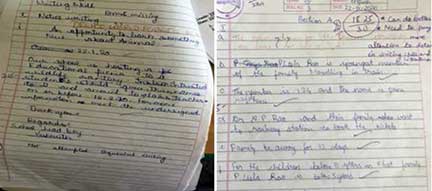
We were encouraged to read blogs, watch educational content on YouTube, and read articles. The reading/watching were always followed either by discussion or encouraging teachers to write and express.
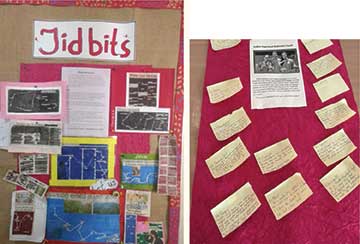
Saturdays were mostly used to learn and share. Teachers who had attended workshops outside the school were encouraged to share their learnings with their colleagues. I have conducted sessions on story-based pedagogy for my colleagues. In the process of trying out all these initiatives, I began to enjoy my second innings as a teacher. I became a student, constantly learning from new experiences and also from other teachers. For instance, I learned to plan and be more organized from one of my colleagues.
Investing in education starts with investing in the teachers. Our school has been very progressive and open to empowering teachers. The school does need analysis of areas where teachers need to be empowered and identifies courses that teachers can take up. For instance, as I moved from teaching primary classes to middle school, the principal encouraged me to attend a course conducted by TISS (Tata Institute of Social Sciences) on Designing Learning Experience for the English Classroom. I was very excited as well as nervous to be a part of this course as it was my first online course and I had some concerns about using technology. However, it gave me the confidence to reflect on planning my classroom activities and equipped me with the skills to design an engaging lesson plan.
A teacher needs to continuously learn and unlearn. Over the last five years, I have attended several workshops to embrace the changes I need to upgrade my skills and improve my teaching-learning practices and the opportunity to move to teach from primary to middle school.
Attending continuous professional development programs positioned me better in classroom teaching. I was able to adapt storytelling as a pedagogy and integrate art, bring in creativity in my lesson plans and question papers.
Some of the workshops that I learnt from:
i) The storytelling workshops conducted by Surekha Dey and Vikram Sridhar gave me insight into story-based pedagogy.

ii) The critical thinking through stories workshop by Nivedita Bedadur left a profound imprint on my teaching and learning journey. The series of sessions conducted by her taught me to use stories as a source to sensitize children towards sensitive topics. I was able to conduct ‘Literary Week’ in school with a different perspective after this session.

iii) The poetry workshop by Smitha Nair was a remarkable learning experience. The language teachers were empowered to nurture their poetry writing. It taught me to express ideas and present my thoughts. It enabled me to conduct a ‘Poetry Week’ at school independently and introduce different kinds poetry to the students. The learning from the workshop became a part of subject enrichment activities for our students.
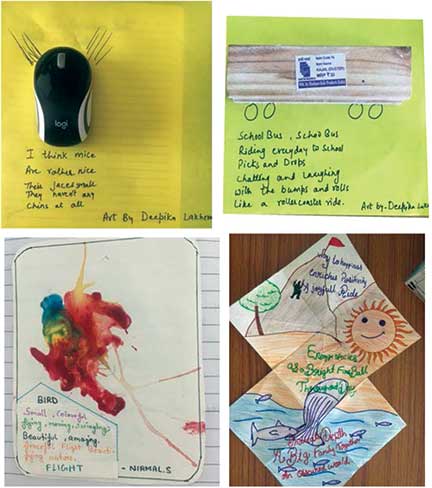
One of the in-house sessions that I benefited immensely from was a session on ‘time-management.’ These series of sessions were designed, planned, and executed by the teachers based on a need-analysis that was done. This session helped improve our productivity and helped the students with setting goals and achieving them.
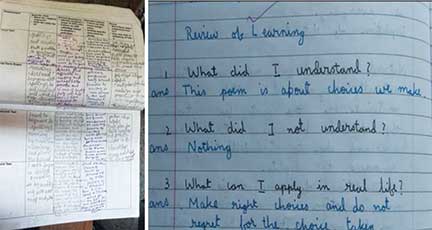
Participation in professional development workshops offered by the school not only made me competent and confident in acquiring new skills but developed an urge to learn more. The course conducted by TISS on Mentoring for Teacher Professional Development went beyond acquiring the communication, leadership or interpersonal skills for me. It enthused me to collaborate and come up with new ideas and prepare for a future leadership role. Being part of all these workshops created a quest for self-improvement, led me to attend workshops on my own. When I started teaching senior school, I felt the need to have a structured plan for language teaching. This led me to take up a course on Communicative English Language Teaching from TISS.
The turning point in my teaching journey was when I became part of a reading program initiated by our school along with external resource people. The immersive book reading session was a great learning experience, wherein I learnt how personal experiences can make learning more relatable for students and integrate multidisciplinary and experiential learning to it. The very next year, I was able to work independently with my students on another book reading session whether it was planning activities or connecting it with real-life situations that gave me a sense of responsibility and self-reliance.
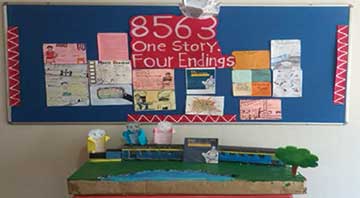
Teacher development will not be possible without the school’s initiative. It begins with the school management having the vision. I was lucky to have worked with a principal who strongly believed in continuous professional development of the teachers.
Achieving a healthy work-life balance is very important for the sustainable growth of a teacher. I find myself very lucky to have a supportive family and colleagues who helped me overcome the challenges that I faced.
When the school invests in the teachers, it provides them with the opportunity to evaluate their own teaching-learning practices and sustain their personal and professional growth. Teachers too have to take the opportunities that come their way and be open-minded to learn. I have enrolled for workshops on my own having seen the benefits of attending such programs and seeing their impact on the students.
I resonate with Alvin Toffler’s quote “The illiterate of the 21st Century are not those who cannot read and write, but those who cannot learn, unlearn and relearn.” One of the most important skills that we need to teach our students is to be life-long learners and it is the responsibility of the teachers to model it for them.
The author teaches English at Delhi World Public School, Bangalore. She can be reached at lakheradipikag@gmail.com.
